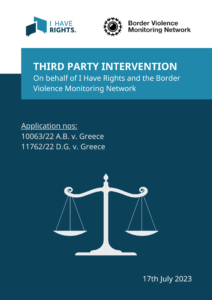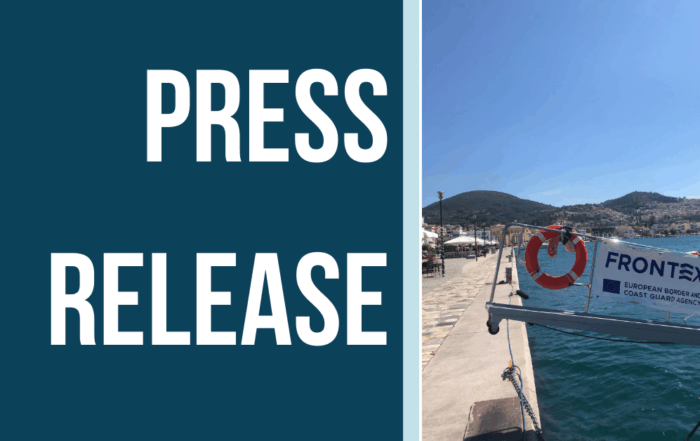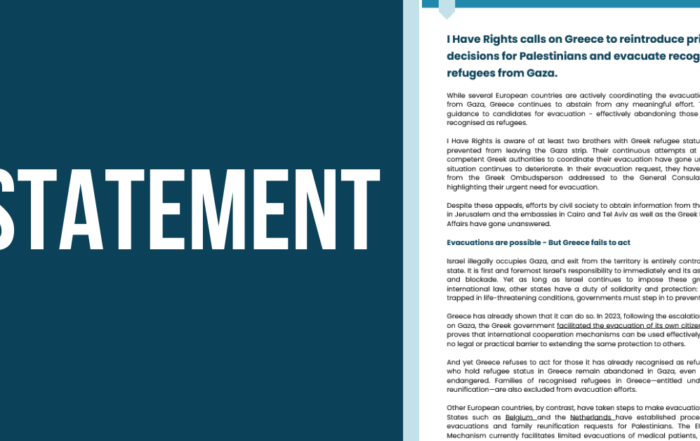
Press Release
I Have Rights and the Border Violence Monitoring Network present evidence of an established practice of pushbacks at the Greek-Turkish land border and demonstrate a lack of access to domestic remedies in Greece for survivors.
VATHY, 25th July 2023 – I Have Rights (IHR), a Samos-based non-profit refugee law clinic and the Border Violence Monitoring Network (BVMN), a network of non-governmental organisations denouncing pushbacks and human rights violations against people on the move at European borders, submitted a joint Third Party Intervention to the European Court of Human Rights (ECtHR) in the cases of A.B. v. Greece (Application no. 10063/22) and D.G. v. Greece (Application no. 11762/22).
The cases concern two applicants, a French-Turkish national and her husband, a Turkmen national, who report to have been pushed back from Greece to Türkiye by the Greek authorities after fleeing persecution in Türkiye. The applicants are now both in prison in Türkiye, sentenced for six years, after being accused of being part of the Gülen movement, blamed by the Turkish authorities for being behind the 2016 coup attempt, and since then designated a terrorist organisation in Türkiye. Before the ECtHR the applicants report Greece and Türkiye have violated their rights, including the right to life, the prohibition of torture and their right to an effective remedy and to liberty and security. As put by Alexandra Bogos, Legal Advocacy Coordinator at BVMN:
“This is another important case, brought by Front-Lex to the European Court of Human Rights, that shows the indiscriminate nature of pushbacks. No matter your nationality, if you are forced to flee Türkiye, you are at risk of being pushed back directly to your persecutors by the Greek authorities. Even if you are an EU citizen”.
Acting as a third party to the case, IHR and BVMN presented the ECtHR with: i) evidence on the established methods of pushbacks at the Evros border and ii) on the lack of access to effective remedies in Greece for survivors of pushbacks. On, the modus operandi of pushbacks, the intervenors provided evidence of violence, inhuman and degrading treatment, torture, incommunicado detention and risk to and loss of life in during Evros pushbacks. Ella Dodd, Project Coordinator at IHR, explains:
“Such practices [pushbacks] regularly violate the right to life, the prohibition of torture and the right to liberty and security”.
The intervenors then highlight the lack of domestic remedies in Greece for pushbacks, demonstrating that the possible legal remedies are either inaccessible or ineffective. In addition, they argue that pushbacks are a “de facto general policy” thus precluding the ECtHR’s requirement to exhaust domestic remedies.
The organisations await the outcome of the Committee’s 1459th meeting this month in March.They hope that Safi may provide the Committee with a unique opportunity of engaging with Greece over one of the most pressing human rights issues today: pushbacks and violations during operations of border control.
Media contact
I Have Rights
Candice Schmitz
+306973528096
advocacy@ihaverights.eu
The Border Violence Monitoring Network
Alexandra Bogos
legal@borderviolence.eu




Leave A Comment
You must be logged in to post a comment.